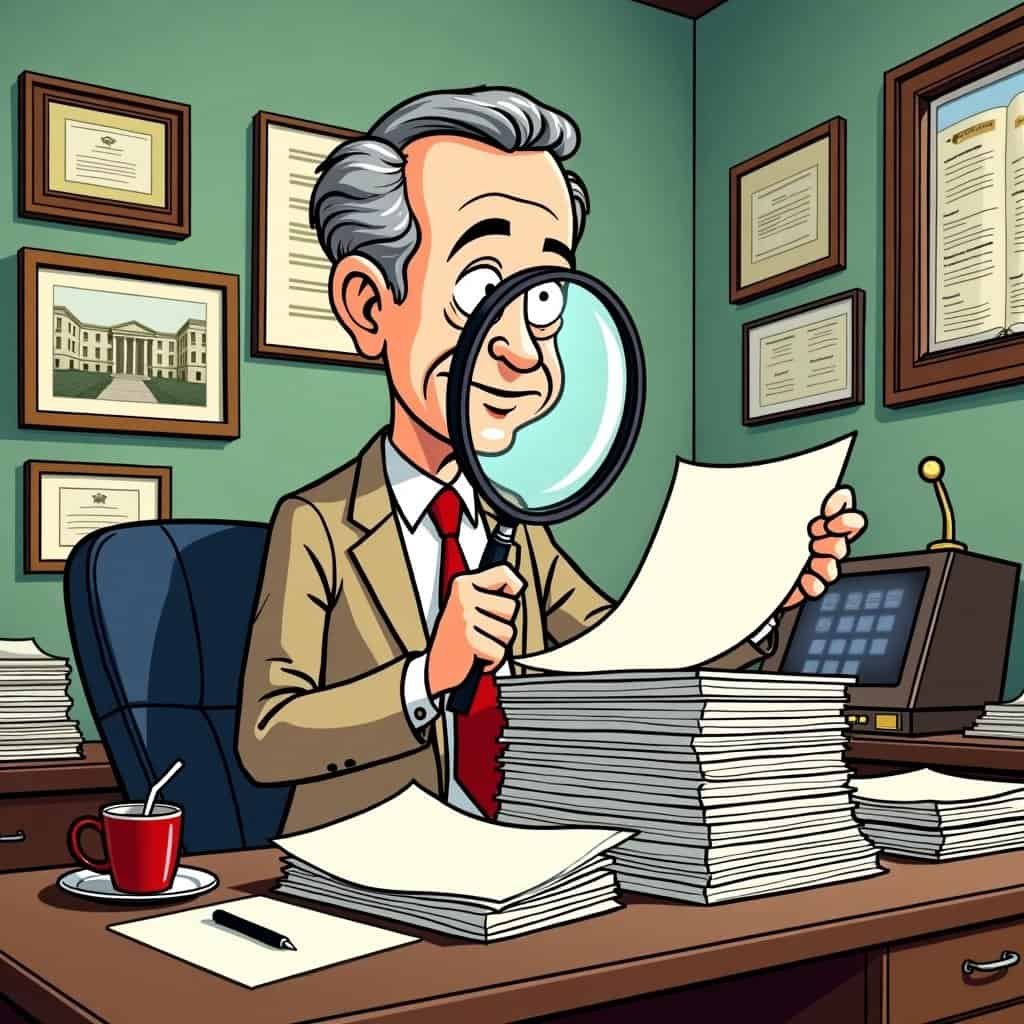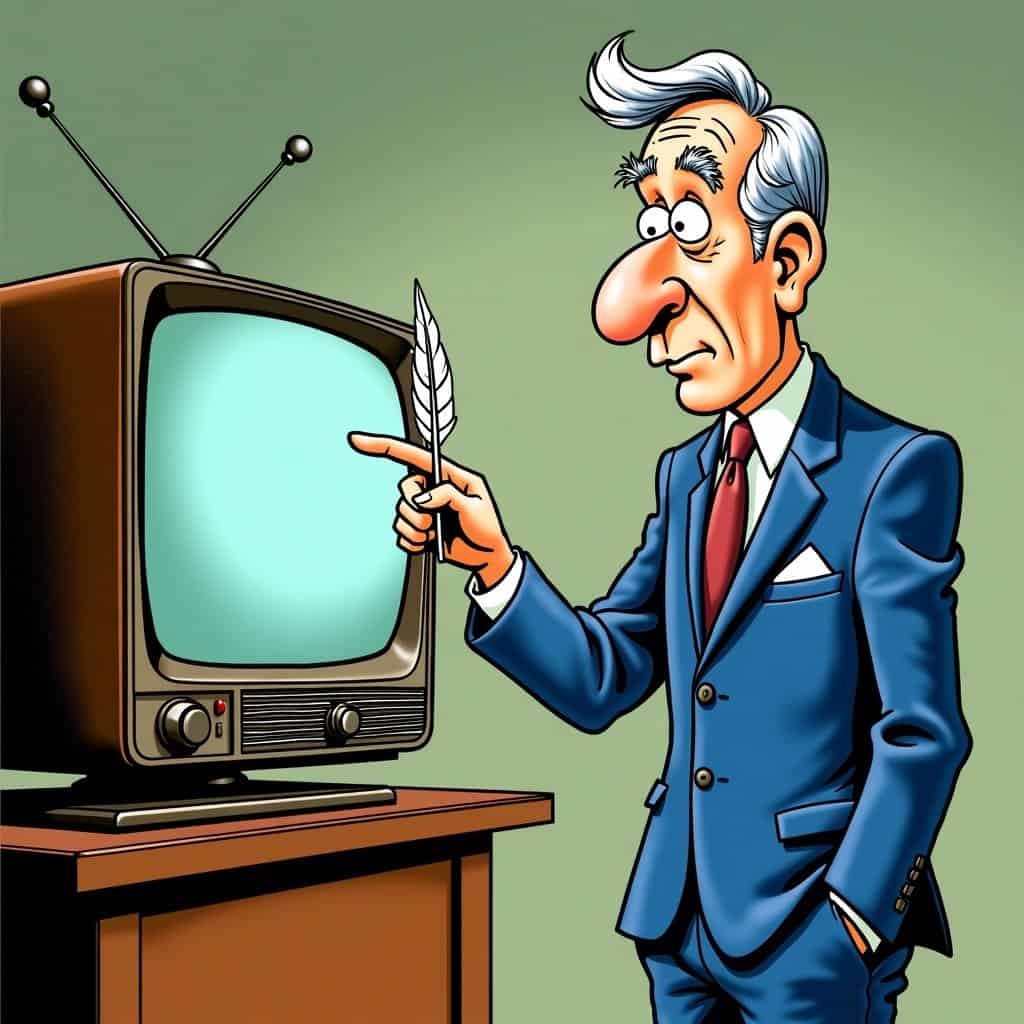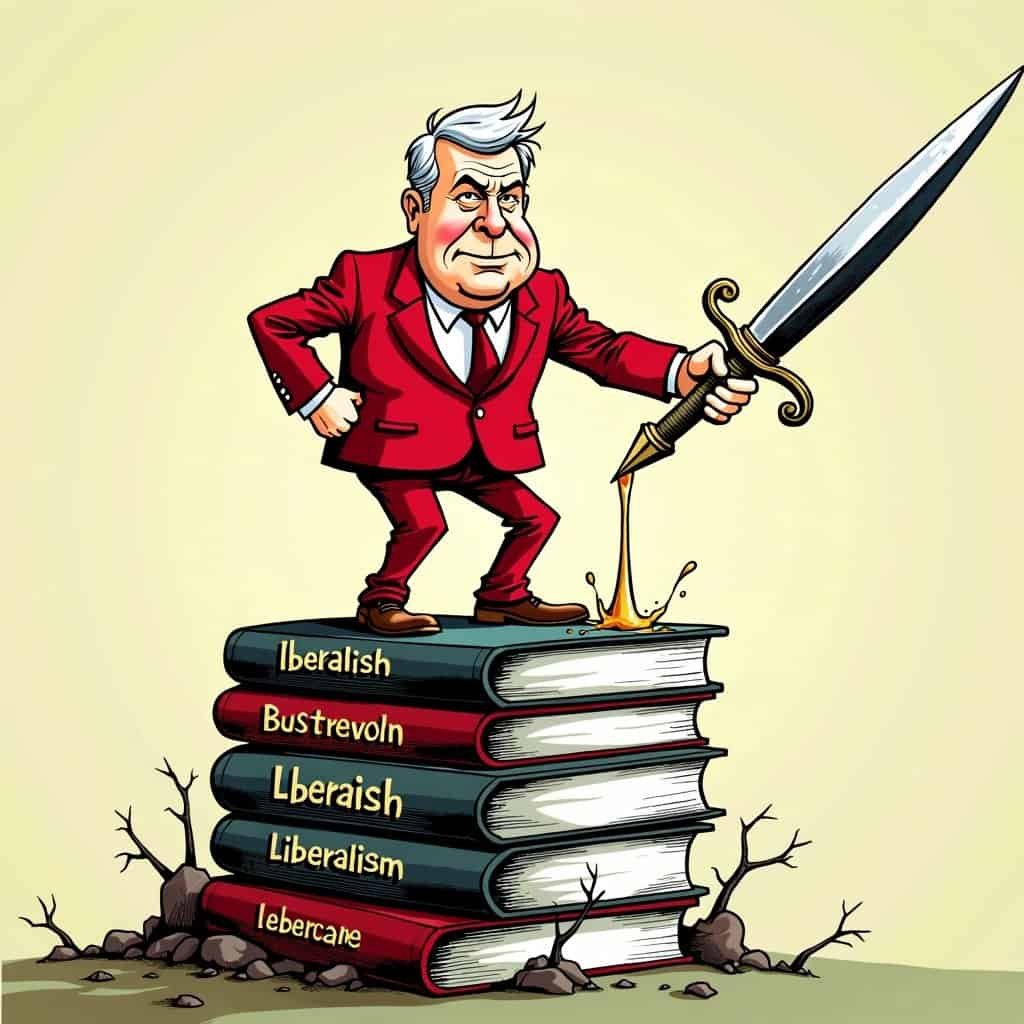When you think of someone who can make government bureaucracy look as tangled as your holiday lights, think of William F. Buckley Jr. This titan of conservative thought had a way of skewering bureaucratic inefficiencies with a wit as sharp as his immaculate suits.
Buckley, armed with a vocabulary that would make a thesaurus blush, often pointed out the excessive and redundant nature of government agencies. In his view, these layers of red tape were not just annoying but fundamentally harmful to the freedoms we hold dear.
Picture, if you will, a room full of government workers, each trying to outdo one another in the art of doing nothing. That’s the kind of scene Buckley could paint with his words. It’s almost poetic, like Shakespeare, but for those of us stuck waiting for our driver’s license renewal.
Bureaucracy vs. Liberty: The Buckley Perspective
In a world where every issue seems to call for a new task force or committee, Buckley argued for the beauty of simplicity. His take was straightforward: less bureaucracy equals more liberty. He wasn’t about adding more cooks to the kitchen; he was about making sure the kitchen ran smoothly in the first place.
“The best way to keep a government in check is to keep it simple.” – William F. Buckley Jr.
Buckley believed that the average American has the creativity and determination needed to innovate and thrive—if only the government could step aside. It’s a fundamental conservative value: the belief in personal responsibility and the potential for greatness that lives in each of us. Unlike liberal views that suggest more government programs to smooth out life’s many bumps, Buckley’s conservative stance was like handing you the iron and saying, “You’ve got this.”
The Role of Essential Services
Of course, that doesn’t mean Buckley was pushing for a chaotic free-for-all. Not at all. He recognized the need for essential services like national defense—think of it as making sure there are firefighters to handle the really big blazes—and some basic regulation. The key word here is ‘basic’—just enough to keep things running without turning it all into a maze of paperwork.
Conservative vs. Liberal Approaches
| Conservative (Buckley’s View) | Liberal Approach |
|---|---|
| Minimal government intervention | Greater government involvement |
| Lower taxes | Higher taxes |
| Emphasis on personal responsibility | Focus on social programs |
| Limited regulation | Increased regulation |
It’s interesting to see how this conservative wisdom compares to the liberal or progressive approach, which tends toward higher taxes and greater government intervention to address social inequalities. While such policies may offer quick relief, they often come at the cost of reduced incentives for businesses and individuals to excel. As the economy slows, tax revenues shrink, leading to even more reliance on government support—creating a tail-chasing scenario that even the best government programs can’t fix effectively.
Buckley’s Lasting Impact
Buckley’s critique of government bureaucracy wasn’t just criticism—it was a call to action for efficiency, innovation, and most importantly, individual liberty. By pointing out the inefficiencies and redundancies of bureaucratic systems, he challenged us to think differently, work smartly, and strive for excellence without the looming shadow of Big Brother slowing us down.
So the next time you find yourself caught in a web of governmental red tape, think of William F. Buckley Jr. and his timeless words. It’s a reminder that sometimes, the best way for the government to help is simply to step aside, so that the bright, innovative spirit of the American people can shine through. Who knows, maybe you’ll even manage to untangle those holiday lights in the process.
In the end, while some might argue that more government can solve our problems, Buckley’s consistent message was one that strikes a chord with conservative values. Less bureaucracy means more freedom, more efficiency, and a brighter future for all of us. Now, doesn’t that sound like a gift we could all use?
Table of Contents
- Bureaucracy vs. Liberty: The Buckley Perspective
- The Role of Essential Services
- Buckley’s Lasting Impact






